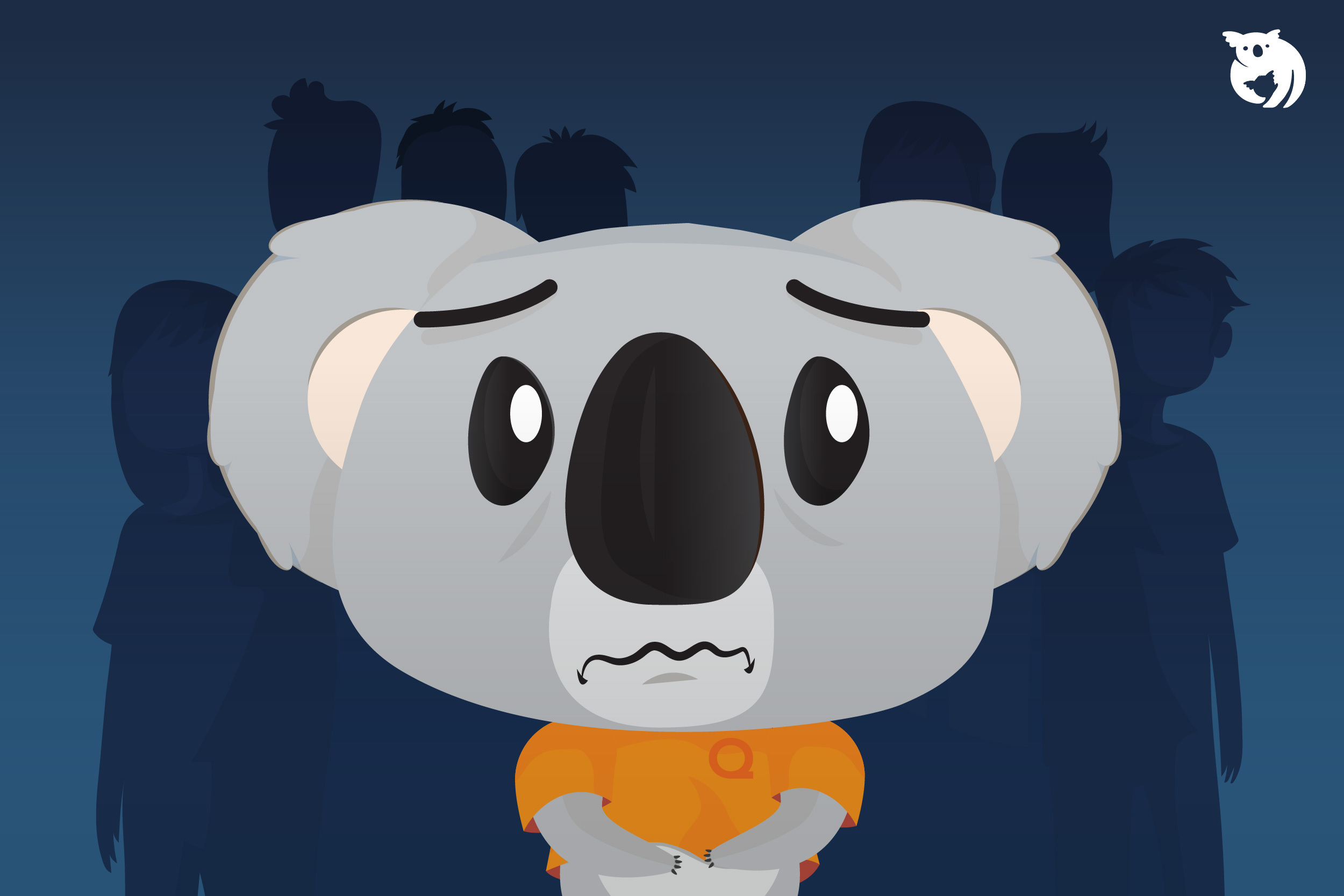Often we hear mental health being associated with issues like depression or suicide. Therefore, do not underestimate the importance of mental health. Like any other illness, someone who is experiencing mental health problems requires treatment to recover. Mental health can affect daily life, relationships with others, and physical health. This means that if someone is facing mental health issues, they are likely to experience problems such as stress, depression, and anxiety that can affect their mental health and disrupt their daily routine. Do you or someone you know face these issues? If you want to learn more and understand mental health, continue reading this article.
What Is Mental Health?
What is the definition of mental health? What is the importance of maintaining mental health? Mental health encompasses our emotional, psychological, and social well-being. It affects how we think, feel, and act.
In theory, it explains human development in terms of behavior, psychology, philosophy, and society. Some characteristics of individuals with good mental health include the ability to manage stress, connect with others, and make good choices. As humans, we cannot escape the problems of life. Stress and other challenges will arise when we work or face certain issues.
According to the World Health Organization (WHO), individuals with good mental health are aware of their ability to cope with stress and other challenges in life.
What about those who do not have good mental health or, in other words, have poor mental health?
Those facing mental health issues are likely to have difficulty coping with stress and other challenges emotionally and mentally. This will have a negative impact on their mental health and daily life. Their everyday work and interactions with others will be disrupted and influenced by changes in their mood and behavior.

Factors That Affect Mental Health
There are many factors that can influence a person’s mental health, here are some common ones:
1. Losing a Loved One
When we lose someone we love, it is difficult for us to accept the reality. There is no right or wrong way to process grief or sadness, and we can experience it in various ways.
In situations like this, it is very important for you to accept moral support from family and friends. Do not be afraid to ask for help.
2. Domestic Violence
Domestic violence means that someone does not feel safe and is afraid due to the violent actions of one or more family members. If we look at the news nowadays, there are many cases of physical abuse, rape, and so on.
In most cases, the victim will face very bad life pressures and thus their mental health will also deteriorate. According to Berita Harian, as many as 902 cases of domestic violence have been reported from January 2021 to April 2021.
3. Losing a Job and a Source of Income
Many people have lost their source of income due to losing their job or their business closing, especially since the beginning of COVID-19. This will have a negative impact on mental health. It’s difficult to sustain life without a source of income, especially if there are dependents.
4. Dibuli
Buli boleh berlaku kepada sesiapa dan di mana-mana pun. Ia boleh di sekolah, di rumah, di tempat kerja, di ruang media sosial dan sebagainya. Ramai orang yang dibuli berasa takut untuk bersuara. Apa yang biasa terjadi, mereka ini memendam perasaan sehingga boleh menjejaskan kesihatan mental.
Banyak lagi sebenarnya faktor yang menyebabkan seseorang itu menghadapi masalah ini. Seperti yang dinyatakan di atas tadi, setiap orang menghadapi situasi yang berbeza-beza.

Mental Health Symptoms
So, how do you know if you might be experiencing mental health problems? The following are symptoms that you need to pay attention to:
- Feeling sad most of the time;
- Thoughts of suicide;
- Confused thinking or trouble concentrating;
- Feeling anxious, worried, or guilty all the time;
- Extreme mood changes;
- Avoiding social activities and withdrawing from friends and family;
- Feeling very tired, lacking energy, or having trouble sleeping;
- Disconnecting from reality (delusions), paranoia, or hallucinations;
- Inability to cope with daily problems and stressors;
- Difficulty understanding and relating to situations and people;
- Significant changes in eating habits;
- Excessive anger, aggression, or irritability.
Sometimes, symptoms of mental health disorders manifest as physical problems, such as stomach pain, back pain, headaches, or other unexplained aches and pains.
Mental Health Treatment
For your information, most individuals diagnosed with mental health problems recover through various methods, whether individually or in groups.
To determine the types of diagnoses and check for related complications, patients may need to undergo:
- Physical examination. Doctors will try to rule out physical problems that may be causing your symptoms.
- Lab tests. These may include, for example, checking your thyroid function or testing for alcohol and drug use.
- A psychological assessment. A doctor or mental health professional talks with the patient about symptoms, thoughts, feelings, and behavioral patterns. Patients may be asked to fill out a questionnaire to help answer these questions.
After going through the above tests and being diagnosed, it is now time to receive the appropriate treatment. The suitable treatment may vary for each individual.
Psychotherapy
Psychotherapy is a therapeutic treatment for mental illness provided by trained mental health professionals. Also known as therapy, psychotherapy is a treatment that allows patients to talk and explain their condition and feelings.
With psychotherapy, patients can explore and delve into their thoughts, feelings, moods, and behaviors. Patients usually feel better with the help of psychotherapy in a few months, but in some cases, longer treatment may be necessary depending on the condition. When choosing a therapist, patients should feel comfortable and confident that they can listen and understand what needs to be said.
Medications
Medications do not directly cure mental health problems. However, they can help patients manage their symptoms. Medications and psychotherapy are among the most effective ways to encourage recovery. Some of the medications taken to treat mental health problems are Antidepressants, Anti-anxiety medications, Mood-stabilizing medications, and Antipsychotic medications.
Support Groups
Support groups are not exactly like cheerleaders, but they do share a similar mission of providing emotional and mental support to patients.
A support group is a group meeting where members guide each other towards the goal of recovery together. This group usually consists of non-professionals, but individuals who have experienced similar problems.
Think of the meeting as a safe zone to express feelings and a place where patients can learn from the experiences of others.
Hospital
In some cases, patients may not be able to cope with the emotional burden and their condition becomes so severe that they require treatment in a psychiatric hospital.
This is usually recommended when the patient is unable to care for themselves and is at risk of harming themselves or others. Options may include 24-hour patient care, hospitalization, or intensive treatment.
Own Initiatives
Patients can also make a plan to help themselves by understanding their condition and implementing strategies that can aid in their mental health recovery.
In addition, patients can work together with their therapists. Together, they can decide on the best treatment and care methods based on symptoms and conditions, personal preferences, medication side effects, and other factors.
In some cases, a patient’s mental health problems may be severe enough to require close care from a doctor or loved one until they are well enough to participate in decision-making.
Mental Health Malaysia:
Mental Health Hotline Malaysia
In conclusion, mental health should not be taken lightly or dismissed. When a family member or close friend expresses concerns or talks about their mental health, do not minimize or ignore it.
If you feel that you are experiencing mental health problems, seek advice and treatment from a professional immediately. This article is intended to help you understand mental health issues better.
Click here to view a list of hotlines to contact if you are struggling with mental health. You will receive emotional support and assistance.
P.S. If you are looking for affordable car insurance, visit the Qoala website to enjoy the best car insurance deals in Malaysia. Don’t wait any longer, let’s protect your car with Qoala!

 EN
EN
 MY
MY








